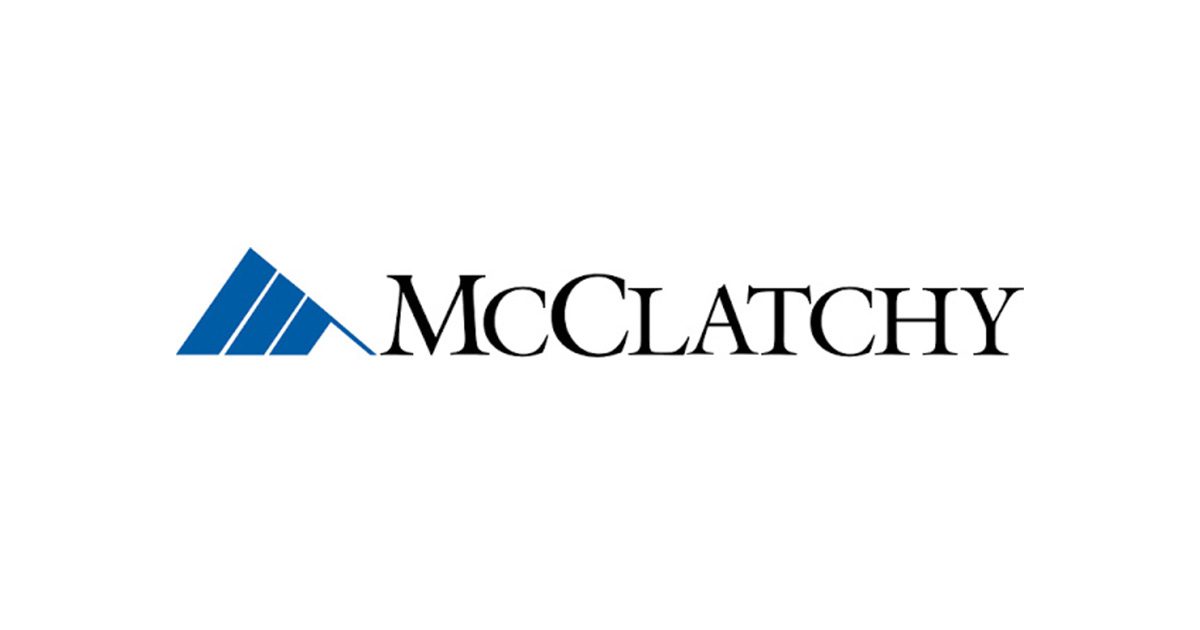
This article originally appeared in 29 McClatchy papers around the country on October 30, 2018.
Search the website of American Gun News, and you’ll find no clue of who posts the content. Same goes for Patriotic Viral News, Liberty Video News, Conservative Zone and 21 other websites, many with strong right-wing views.
Together, the 25 websites get a combined average of 2 million views a day, maybe more, so they have clout, especially in election season.
“You’re now seeing more and more websites stood up that could be leveraging partisanship … to make money.”
For a period, all were hosted by a Tampa-based data center.
Big social media companies like Facebook and Twitter are under pressure from Congress to scrub their pages of disinformation and anonymous influence campaigns. But still under the radar are a profusion of websites, often with no hint of ownership, that traffic on the hyper-partisan sentiments rippling through the country. They dwell in an unregulated area, enjoying freedom of speech protections and liberty to divulge nothing about themselves.
No tricks, all treats! Save 70% on digital access!
Treat yourself to unlimited digital access for only $3.99 per month
Many of the 25 websites focus on hot button issues like gun rights, crime by immigrants, alleged bias by social media platforms, and public employees losing their jobs over their Christian faith.
Corners of the internet that stoke partisan fires, or serve as sanctuaries of racist and violent sentiment, have come sharply to the fore. Cesar Sayoc Jr., the Florida man alleged to have sent 13 packages containing pipe bombs to prominent Democrats and CNN, used social media platforms to peddle his views; Robert Bowers, accused of massacring 11 people at a synagogue in Pittsburgh on Saturday, posted shortly before the shooting spree on Gab, a platform that describes itself as a “free speech” network but also is known to be a haven for racist and anti-Semitic commentary.
While political content draws readers in, the websites seem to have commercial motives, using politics as a vehicle to sell products and weave profiles of readers. Nearly all ask readers to sign up for daily newsletters.
Within the cluster of websites, the most popular is Patriotic Viral News, which gets upward of 375,000 views a day. A typical recent headline on the site says, “NY Driver Shouts ‘Allah’ While Beating Innocent Jewish Old Man.” Another says, “Apple Assigning Users ‘Trust Scores’ Just Like China Does to its Citizens.” Readers shared such posts on Facebook, Twitter and via email.
“You’re now seeing more and more websites stood up that could be leveraging partisanship … to make money,” said Chris Olson, chief executive of The Media Trust, a McLean, Virginia, company that helps publishers verify and monitor traffic on their websites.
Ben Nimmo, an information defense fellow at the Digital Forensic Research Laboratory of the Atlantic Council, a nonpartisan think tank in Washington, said influencing websites are also trying to make money.
“A lot of the ‘fake news’ that we saw in 2016 was not intended to influence the election. It was intended to make money off the election. So even if it is political content, it might be there for commercial purposes,” Nimmo said.
The cluster of websites once hosted in Florida has common design elements, and 16 sites share a common mailing address on Dr. Phillips Blvd. in Orlando, Florida. The address is for the Grand Oaks Mail Center, a commercial mail drop. An employee there declined to provide further information.
The cluster of 25 websites shared the same Internet Protocol address — essentially a number — operated by Hivelocity, a hosting company based in Tampa. Some of the websites appear dormant, such as Liberal Lie Detector. Others draw significant daily traffic, including Conservative Zone, American Liberty Report, Liberty Planet, National Gun Network and Liberty Video News.
One of the dormant sites, Front Page Patriot, says it is copyrighted by LOP Solutions LLC, a Reno, Nevada, company. A daily newsletter from another site, Christian Patriot Daily, also says it is a division of LOP Solutions.
Nevada corporate records say LOP Solutions sells health and medical products and organizes “work-at-home companies.” The records give an address in Windermere, Florida, an Orlando suburb, and say the manager is Mark Edward Baker. The company appears to be an offshoot of League of Power, which describes itself as “a secret society” focused on “entrepreneurship, investing, and wealth preservation.”
A telephone number on the website was for a South Florida location, and a woman who answered identified herself as a call center employee and would not provide information.
Multiple emails over a monthlong period to LOP Solutions and to several of the websites drew no response. Phone calls to the cellular number listed for Baker were not immediately returned.
Whether Baker is the driving force behind the websites is not clear.
Veteran digital forensic experts consulted by McClatchy, using costly proprietary tools, found that the 25 websites hopped repeatedly between hosting companies, including GoDaddy, Hivelocity, Sucuri and others, but were clearly linked.
“It’s not an easy thing to determine who is behind a website,” said Ben April, director of research at Farsight Security, a San Mateo, California, company with tools that specialize in tracing the history and connections of websites — or domains — on the internet.
In late 2017, a variant of one of the websites, US Politics and News, turned up on the hosting service BlueAngelHost in Sofia, Bulgaria. It was listed as uspoliticsandnews.com.com, and several experts said the domain could have been hijacked by internet criminals.
The lack of transparency about who runs such websites is important given the history of Russian interference in the 2016 U.S. presidential elections. Special Counsel Robert Mueller this year has brought indictments against more than two dozen Russians on a variety of charges related to internet influence campaigns.
The FBI’s Tampa field office spokeswoman, Andrea Aprea, declined to say if the 25 websites hosted on the Hivelocity server were on their radar.
Bret Schafer, a digital propaganda expert at the Alliance for Securing Democracy, a bipartisan group seeking to counter efforts by Russia to undermine democracy in the United States and Europe, said he didn’t see evidence that the sites were a foreign operation.
“I don’t see anything here that suggests a foreign hand, so my guess is that this would fall more in the realm of a domestic influence campaign rather than a foreign one,” Schafer said. “That said, efforts to cover foreign fingerprints have gotten more sophisticated over the past year, so it’s possible that they’ve just done a really good job of hiding any foreign ties.”



